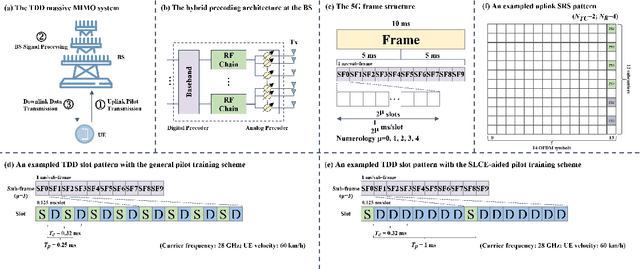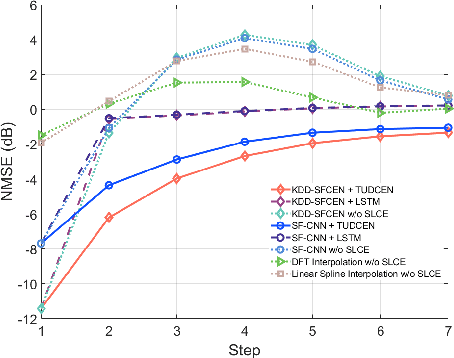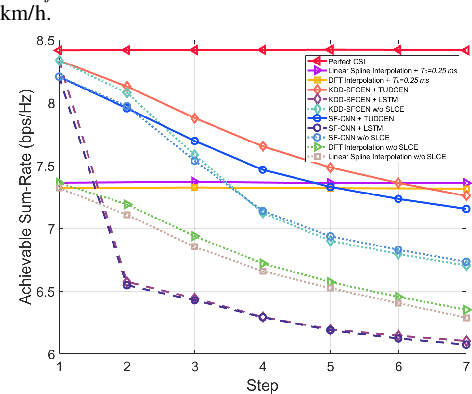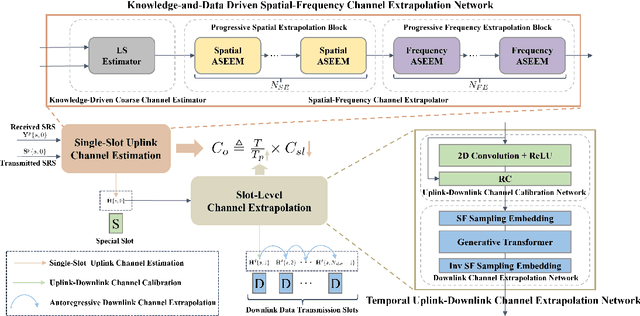Low-Overhead Channel Estimation via 3D Extrapolation for TDD mmWave Massive MIMO Systems Under High-Mobility Scenarios
Paper and Code
Jun 13, 2024



In TDD mmWave massive MIMO systems, the downlink CSI can be attained through uplink channel estimation thanks to the uplink-downlink channel reciprocity. However, the channel aging issue is significant under high-mobility scenarios and thus necessitates frequent uplink channel estimation. In addition, large amounts of antennas and subcarriers lead to high-dimensional CSI matrices, aggravating the pilot training overhead. To systematically reduce the pilot overhead, a spatial, frequency, and temporal domain (3D) channel extrapolation framework is proposed in this paper. Considering the marginal effects of pilots in the spatial and frequency domains and the effectiveness of traditional knowledge-driven channel estimation methods, we first propose a knowledge-and-data driven spatial-frequency channel extrapolation network (KDD-SFCEN) for uplink channel estimation by exploiting the least square estimator for coarse channel estimation and joint spatial-frequency channel extrapolation to reduce the spatial-frequency domain pilot overhead. Then, resorting to the uplink-downlink channel reciprocity and temporal domain dependencies of downlink channels, a temporal uplink-downlink channel extrapolation network (TUDCEN) is proposed for slot-level channel extrapolation, aiming to enlarge the pilot signal period and thus reduce the temporal domain pilot overhead under high-mobility scenarios. Specifically, we propose the spatial-frequency sampling embedding module to reduce the representation dimension and consequent computational complexity, and we propose to exploit the autoregressive generative Transformer for generating downlink channels autoregressively. Numerical results demonstrate the superiority of the proposed framework in significantly reducing the pilot training overhead by more than 16 times and improving the system's spectral efficiency under high-mobility scenarios.
 Add to Chrome
Add to Chrome Add to Firefox
Add to Firefox Add to Edge
Add to Edge